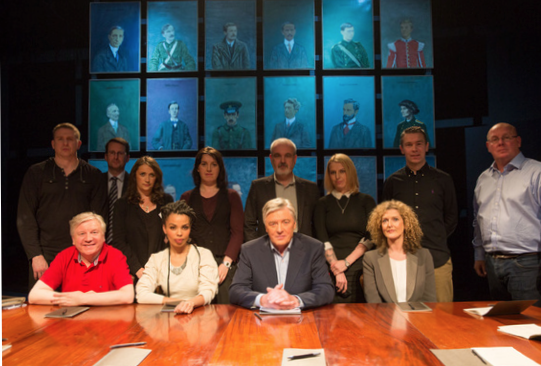What might have happened if Padraig Pearse, instead of being executed by the British after the 1916 Rising, had been put on trial before a judge and jury?
TV3 is asking this question in a three-part programme this weekend. At 9.15 pm today and tomorrow, they will dramatise this imagined trial, with Love/Hate’s Tom Vaughan-Lawlor playing Pearse.
At 9.15 pm on Monday, they will show a jury of real people deliberating on the trial. I’m one of the jury members, and I’ll write about the experience here afterwards.
TV3 portrays imagined trial of Padraig Pearse, with jury deliberation

It’s not an actual jury, though, is it?
In a real jury situation regarding the events you wouldn’t get past jury selection based on your published record.
I’d have respectfully and quietly declined the invitation.
In any event I don’t see any value in a revisionist revisiting of events.
A question: if, based purely on the witness statements and disregarding your own preconceptions, you find justification in the events which took place and you end up siding with Pearse will your attitude to the Rising (one which I partly share) change?
I mean that seriously. If the jury deliberations lead you to a conclusion other than one you presently hold it would be interesting. Of course it doesn’t create a contradiction, but it might put you into a context other than the one we hold now – one with recourse to many more facts than were available at the time. It’s problematic to apply contemporary mores to past events without at least trying to put yourself in their shoes.
It will certainly be an interesting intellectual experience. I’m not going to pretend that in your shoes I’d be able to rid myself easily of my preconceptions, but I’d give it a bloody good go.
Enjoy the experience.
The British did not execute Padraig Pearse by way of an extra-judicial killing. Pearse was court-martialed, tried and then legally executed by sentence. Wikipedia defines: “a court-martial…is a military court. A court-martial is empowered to determine the guilt of members of the armed forces subject to military law, and, if the defendant is found guilty, to decide upon punishment. In addition, courts-martial may be used to try prisoners of war for war crimes…” From the British perspective, the 1916 rising was an act of war. The military and civilian deaths that resulted were not isolated homicides whose perpetrators were entitled to a trial by judge and jury. However just and noble Pearse believed the republican cause to be, he clearly called for armed resistance against British rule in 1916. The IRB under Pearse acted as a military organization engaging British troops in combat. Pearse was not entitled under the law of the time to be tried in a civilian court.